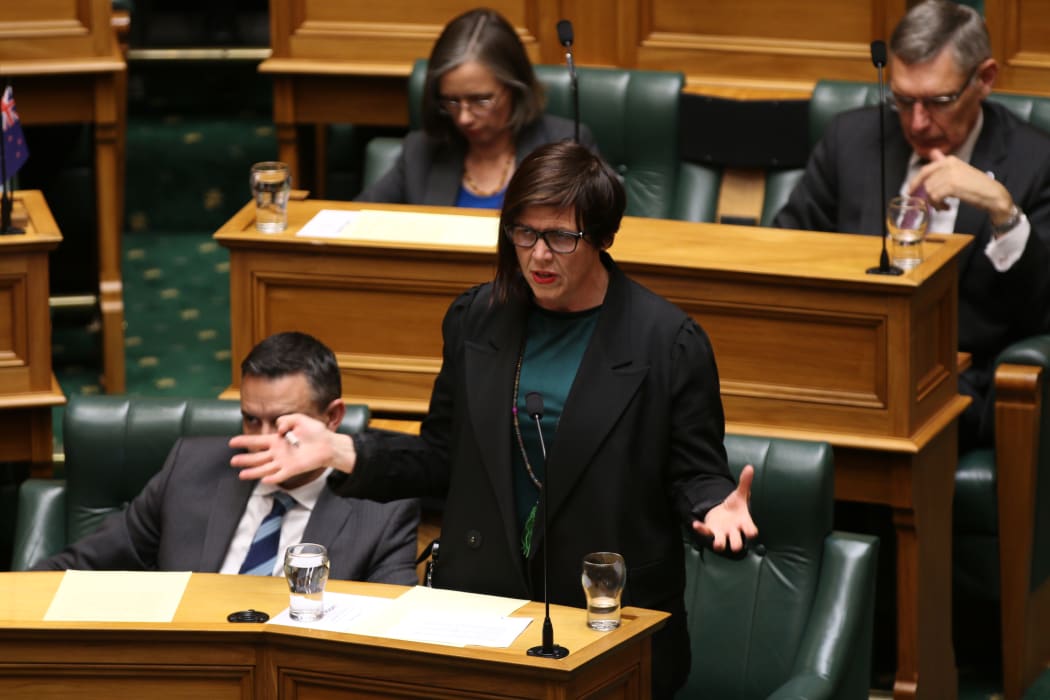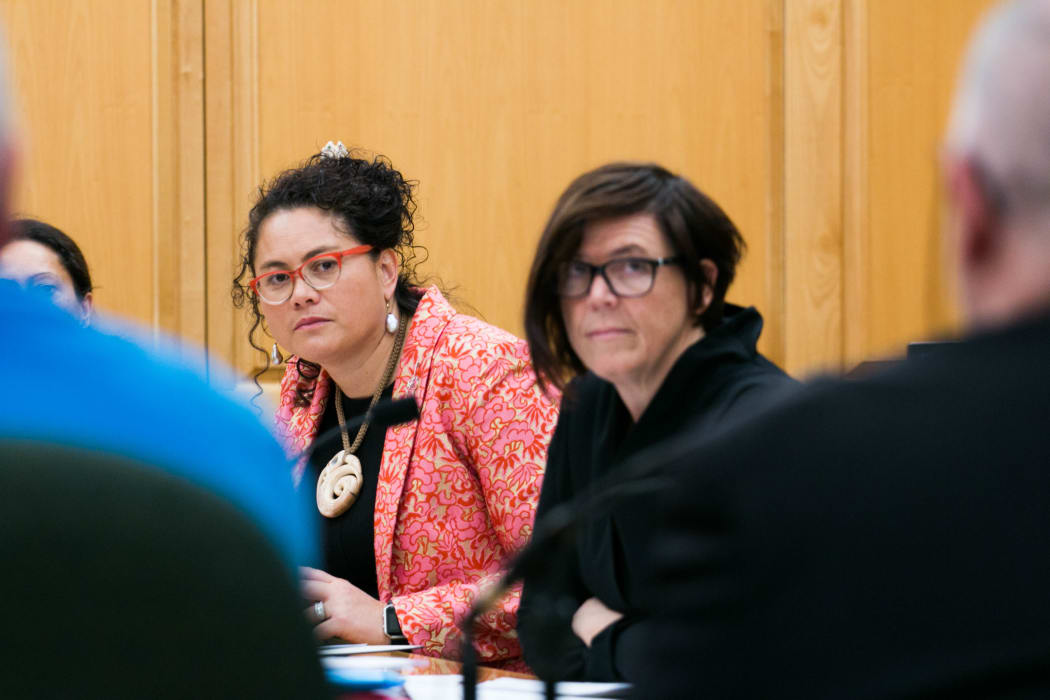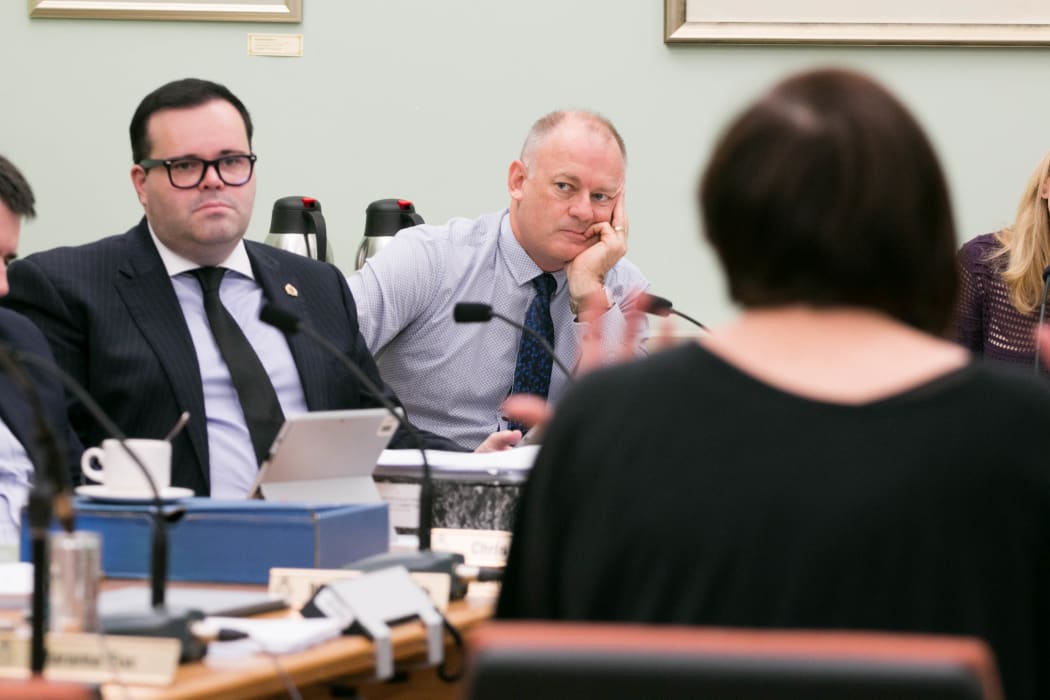A bill offering help to victims of domestic violence took another step in Parliament this week, but it has lost some support along the way.
The Domestic Violence - Victims Protection Bill is a Member's Bill, from Green MP Jan Logie. Member's bill's are not government legislation, they are proposed by back benchers and so are not assured of support from any party.

Jan Logie in the House. Photo: VNP / Phil Smith
This bill first came up for a vote some time ago, on International Women's Day in March 2017. As sometimes happens - it received unanimous support for a first reading - although National's Amy Adams voiced reservations.
"...We are going into it with an open mind and registering some genuine concern about the bill as drafted, but very happy to engage in the process."
A first reading sends a bill to a select committee, which provides a chance to hear public feedback, and see whether there is support for tweaks to the drafting.

Labour MP Louisa Wall (left) and Green MP Jan Logie (right) listen to submissions on Jan Logie's Domestic Violence Victim's Protection Bill. Photo: VNP / Phil Smith
This week the bill finally returned to the House for a second reading. This is where the House accepts or rejects feedback from the Select Committee and votes whether or not the bill should survive.
It did survive but it no longer has unanimous support. That's also not unusual at this stage.
Broadly, the Bill enables victims of domestic violence to be able to request up to 10 days of extra leave from employers in order the help them cope with its affects, or even plan an escape.
The ACT and National parties declared during the committee process that the bill is too onerous for small and medium sized businesses. Mark Mitchell introduced this argument for National,
"The problem that I saw with this bill is that what we're going to do is we're going to say small and medium sized businesses, you're now going to have to find a way to manage an additional 10 days of leave. Small and medium sized businesses, you're now going to have to find a way of managing the compliance costs."
National MPs also argued that big businesses were already allowing this kind of leave, and employers could allow staff to take sick leave or annual leave provisions.
Mark Mitchell noted they would suggest an amendment (a Supplementary Order Paper) to formalise this during the next stage of debate (The Committee of the Whole House).
"One of the Supplementary Order Papers is going to be aligning to and supporting the premise that if a person is suffering from family or domestic violence, then they are entitled to take annual leave or sick leave because they have been a victim of family domestic violence. I mean, to me, that seems like a very, very good compromise."

Jan Logie switched roles from listener to submitter while the Bill was at select committee last year. Former National MP Paul Foster Bell (left) and National's Jono Naylor (right) listen to her submission. Photo: VNP / Phil Smith
As the Bill's sponsor, Jan Logie had spoken first in the debate, but had predicted this line of argument.
"There are some in this House who say that employers are doing this all already so it's unnecessary. These same people seem to think five days sick leave is enough to deal with flu, going to court, counseling, and children experiencing trauma and recovery from assault. I do want to acknowledge the many employers who are already doing the right thing by their staff," she said.
"However, we can't delude ourselves, even in the public service many, if not most attempts, to get these protections into contracts have, in fact, failed. We heard plenty of evidence through submissions that not all employers are adequately supporting their staff or know how to. Court staff told the select committee that victims regularly raised concerns about not having enough paid time off work to give legally-required evidence in cases of domestic violence."
The Bill achieved a second reading with support from Labour, New Zealand First and the Greens. It will now move to the committee stage where the house debates its details and can suggest amendments to the language.
The full first reading debate can be found here.
The full second reading debate can be found here.
The original text of the Bill can be found here.
The proposed amendments to the bill, including from its sponsor can be found here.


